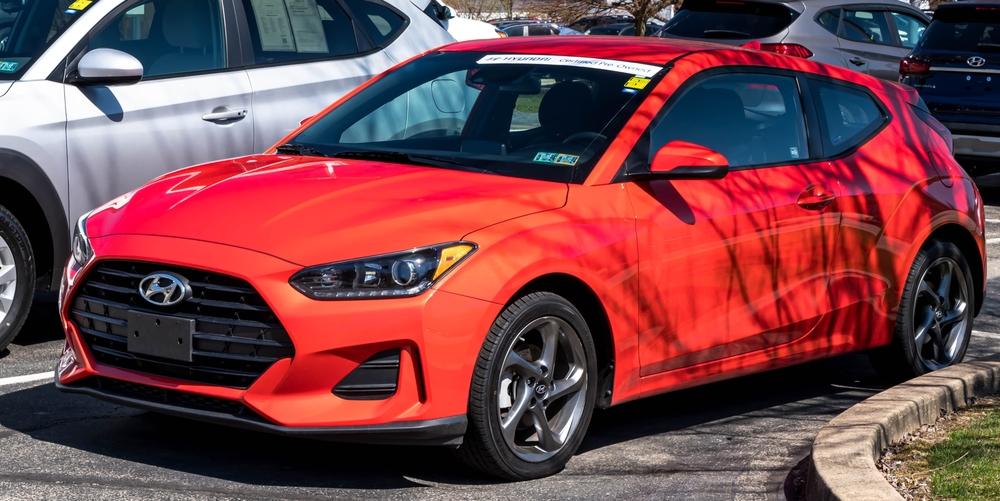
Did you buy a car overseas and want it home in the US? Of course, you must import it. Importing a vehicle from anywhere in the world to the US is not impossible. You can certainly do it. But is your car eligible?
Specific procedures must be followed to determine if your car is eligible for import to the US. Various regulations govern the import process, and going through them alone may be overwhelming.
However, with this handy guide, you may conquer the import process, especially if you get on board with a partner like A1 Auto Transport.
Learn how to check if your car is eligible for import and what the import process is like.

Overview of the Import Process
Importing a car is not just about buying it outside the US borders and bringing it in. Other reasons for importing a vehicle exist. For example, you've been an American expat living abroad, and you like the car you bought in the country you used to live in. Now that you're moving back home, you want to bring the car.
Or maybe you're a car fanatic with your eyes on a particular vehicle. It may be a specialty vehicle not available in the country.
Whatever your reason for importing, you must follow the regulations and complete the required paperwork. There are several steps involved in importing a car in general.
First, you must find out if your car is eligible for import. You can find out its eligibility yourself by following the steps outlined below. Otherwise, you can contact a professional car transport company to get complete insight into your car's eligibility.
Second, you must research specific import requirements and regulations of your destination. This may involve preparing documents like a foreign registration, original Bill of Lading, and bill of sale. Then, there are certificates of compliance, VIN verification, and emissions testing to complete.
This may be the most vital process in the importation of a car. Without adequate paperwork, importing may fail (your vehicle is denied entry at the border) or experience delays.
Third, you must be prepared to pay import duties and taxes. These may cost you differently depending on your car's origin and type. For example, if your vehicle is from Europe, the tax and duties will differ from a car coming in from Canada. And there's the gas guzzler tax for vehicles that don't have fuel efficiency.
And finally, if your car doesn't meet specific standards in the US, it must undergo certain modifications. These modifications will ensure your vehicle is compatible with US safety and environmental standards. But it does mean that the import may take longer to process.
The process can be pretty involved. A customs broker or an import specialist can provide you with invaluable support. They will guide you through the process of importing so you don't miss a step. And this brings us to the following question: who can import cars to the US?
Who Can Import Vehicles to the US?
The short answer is not just anyone can import a car to the US. Only persons or entities eligible to bring vehicles into the country can import a car to the US.
First of all, there's a residency requirement. Only a US resident or a US business can import vehicles. Without US citizenship or status as a permanent resident, they may not import vehicles independently.
Then, the importer must have a valid import permit and other supporting documents. These documents will prove whether the vehicle complies with US regulations.
The automotive industry also has specific gatekeepers when it comes to importing. Registered Importers and Independent Commercial Importers operate under the NHTSA's supervision. These importers will ensure that imported vehicles meet the US safety and emission standards before being used in the US.
RIs must follow strict guidelines to guarantee that their imported vehicles comply with the Federal Motor Vehicle Safety Standards.
Meanwhile, ICIs usually specialize in importing and modifying vehicles for resale in the US market. They work closely with manufacturers and government agencies to ensure that imported cars meet the standards.
Checking Your Car's Eligibility for Import
What influences your car to be eligible for import? Age and origin, for sure. But then there are the strict safety and emissions standards. Here is the complete checklist of what you must examine to deem your care eligible for import.
- Check your car's age. Vehicles over 25 can be imported legally to the US without much hassle. But if the car's age is less than 25, import is only applicable if the car is manufactured according to US standards. The vehicle cannot be imported legally to the US without complying with US standards.
- Check the origin of your car. Where your vehicle is imported from also matters when bringing it to the US. It may be restricted if the imported car does not come from countries the US government approves. Check with the NHTSA website to find out whether your car's origin poses any potential challenges for importing.
- Visit the NHTSA. The website has all the information and resources you require to check if your car is eligible. You can find a list of vehicles allowed to be imported, including the exception to the rule.
- Consult with Registered Importers. Consulting with an active RI specializing in vehicle imports can be helpful. These RIs can guide you in checking your vehicle's eligibility and the import process. However, not all RIs can handle cars from all countries, so choose wisely. Include RIs in your research.
- Consider modifying your car. No matter what, your vehicle must meet the standards the Environmental Protection Agency and NHTSA set. Without compliance with these standards, you're looking at modifications. Once again, make your vehicle eligible for import from modifications by working with a Registered Importer.
- Compile all documents. Your car's essential documents, like proof of age and ownership, will be crucial in the import process. If your vehicle has been modified to meet the safety and emissions standards of the United States, include the records of said modifications among the documents.
- Submit the forms. You must complete two primary forms to demonstrate the validity of your import. The HS-7 Form from the Department of Transportation is one. You can find this form at the port of entry or download it from the NHTSA website. This document is where you declare your car's age. If the vehicle isn't permanently marked with the manufacturing date on a label from the manufacturer, you must submit supporting documents as evidence. The second form is EPA Form 3520-1. You can get this from Customs and Border Patrol.
- Go through inspections. Be prepared for inspections to confirm your car's compliance with the rules. These inspections will ensure that your care has met US standards and can be operated legally in the US.

Conforming vs. non-conforming
In importing, you may hear these terms: conforming or non-conforming. What do they mean when talking about your car?
A conforming vehicle is a vehicle that has met all requirements set by DOT and EPA. Such a vehicle will bear a manufacturer's label stating it has completed the standards. The vehicle labels and ownership and registration documents must be submitted before the import to reduce the risk of any issues at the port.
Meanwhile, a non-conforming vehicle does not have proper certifications or labels. This type of vehicle does not qualify for FMVSS and emissions standards. If you insist on importing a non-conforming vehicle, you must work with an RI or ICI to bring it up to standard.
Non-conforming vehicles can only enter the US temporarily and not for sale. The non-conforming car may enter the US if it is only displayed for a trade show or exhibition. But if it's sold commercially, its import is illegal.
Final Thoughts: Assistance from the Professionals
If the import process is still unfathomable for you, don't worry. You can always consult with the pros about import regulations to learn more about importing vehicles (not just cars, but trucks, motorcycles, and even boats) to the US. Doing your due diligence and seeking professional advice will help the process go more smoothly.
As mentioned, consulting with a Registered Importer is one of the ways you can get help navigating the complex import process. Otherwise, a reputable import-export specialist or a legal professional with expertise in trade law can also help you understand the specific requirements and regulations applicable to your situation.
Trusting a company like A1 Auto Transport to handle your car imports to the US may also be an option. Our import specialists will help you determine whether your car is eligible for import. And if not, they can also give you helpful tips about how to handle the situation. Get a quote for your car right now.






 Share on Facebook
Share on Facebook Share on LinkedIn
Share on LinkedIn Share on Twitter
Share on Twitter




 Google
Google  Instagram
Instagram  Trustpilot
Trustpilot 



